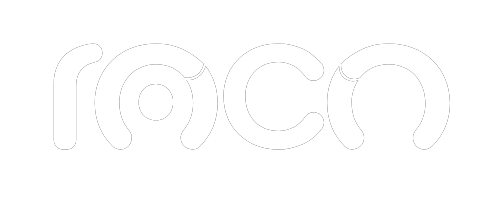In the world of digital marketing and SEO, one of the most discussed topics is what backlinks are and why they have such an impact on a website's ranking. Backlinks can boost your domain authority or, if mismanaged, jeopardize your entire strategy.
In this article, you'll learn what backlinks are, how they work in SEO, what types exist, what characteristics make them quality, and what practices you should avoid to avoid Google penalties.
What are backlinks in SEO?
In simple terms, backlinks are links that point from an external website to yours. Every time another site links to your content, it's sending a trust signal to search engines.
Google interprets these links as "votes" that indicate your site offers useful, trustworthy, or valuable information. However, not all links are created equal: topic relevance, domain authority, and context naturalness determine whether a backlink benefits or harms your business. positioning.
Why backlinks are crucial for your SEO strategy
Having a good backlink profile is one of the pillars of off-page SEO. These are the main reasons:
- Improve your domain authority: Quality backlinks increase credibility with search engines. If reputable sites link to your content, Google assumes your information is also trustworthy.
- Increase organic traffic: Links from high-traffic pages can attract new, relevant visitors to your site.
- Speed up indexing: When Google detects that your site receives external links, it crawls your pages more frequently, improving their indexing.
- They generate digital networking opportunities: Building backlinks often involves building relationships with other sites or professionals in your industry, which strengthens your online presence.
Want to understand the importance of backlinks even better? Watch this short video: “What is a Backlink” and learn how they influence your SEO positioning
Types of backlinks: allies, neutral and risky
Not all backlinks provide the same value. There are different types depending on their origin and level of trust:
1. Natural backlinks
These are those that are obtained organically, without requesting them. Other sites link to your content because they find it useful.
Example: A digital media outlet cites your study and links to your blog as a source.
2. Manual backlinks
They are achieved through active effort, for example, collaborating with other sites, writing guest posts, or managing digital public relations.
Example: Agencia Roco publish a guest post on a marketing portal with a contextual link to this blog.
3. Toxic backlinks
They come from low-quality sites, link farms, or irrelevant topics. Instead of helping you, they can actually hurt you.
Example: A betting site links to your services page that has no relation to your content.
4. Links with different attributes (rel)
dofollow: they convey authority.nofollow: They do not transfer direct authority, but they add naturalness to the profile.sponsored: indicate paid content.ugc: apply to forums or user-generated comments.
A healthy link profile naturally combines different types and attributes.
How to evaluate the quality of a backlink?
To determine whether a link is beneficial or risky, consider the following factors:
| Factor | Description | Importance |
|---|---|---|
| Thematic relevance | The linking site must be related to your niche. | High |
| Domain Authority (DR/DA) | Measure domain strength in tools like Ahrefs or Moz. | High |
| Real organic traffic | If the domain has real visitors, the link is more valuable. | High |
| Anchor text | It must be natural, varied and consistent with the context. | Average |
| Link location | Links in the body of the text carry more weight than those in the footer. | Average |
| Naturalness | Avoid repetitive patterns or sudden spikes in acquisition. | High |
Tip: A profile with contextual, diverse, and relevant links is much stronger than one with hundreds of low-quality links. Want to delve deeper into another key SEO concept? Check out our article: “What is a search engine and why is it essential on the web?”
Tools to analyze backlinks
If you want to check the quality of your links, these tools will be useful:
- Ahrefs → Allows you to review the quantity, authority and toxicity of your links.
- SEMrush → Ideal for detecting harmful backlinks and evaluating their impact on your profile.
- moz → Calculate metrics such as Domain Authority and Page Authority.
- Google Search Console → Shows the domains that link to your website and detects anomalies.
Strategies for getting quality backlinks (without penalties)
- Create truly useful content: Original articles, how-to guides, research, and downloadable resources increase your chances of receiving natural links.
- Guest post on relevant sites: Collaborate with portals in your industry to share knowledge and gain visibility.
- Participate in communities and media in the sector: Forums, events, or professional associations can be legitimate sources of backlinks.
- Take care of your digital reputation: Avoid buying links or participating in mass-sharing schemes. Google detects these practices and penalizes the sites involved.
At Agencia Roco, we recommend prioritizing relevance and editorial quality over quantity. You can learn more about this topic by visiting our SEO service or checking out our approach at Backlink Expert.
Common mistakes when working with backlinks
- Buy links without disclosure.
- Abusing the exact anchor text (“which are backlinks”) in multiple links.
- Ignoring toxic links and not checking them periodically.
- Use link networks (PBNs) or automated farms.
- Do not disavow harmful links from Search Console when necessary.
Understanding what backlinks are is key to your SEO.
Knowing what backlinks are allows you to understand how online authority is built. More than a question of quantity, it's about consistency, relevance, and naturalness. A healthy link profile reflects trust, leadership, and a sustainable SEO strategy.
If you want to improve your rankings or learn how to audit your links risk-free, learn more in our SEO service or check out our methodology at Backlink Expert.




